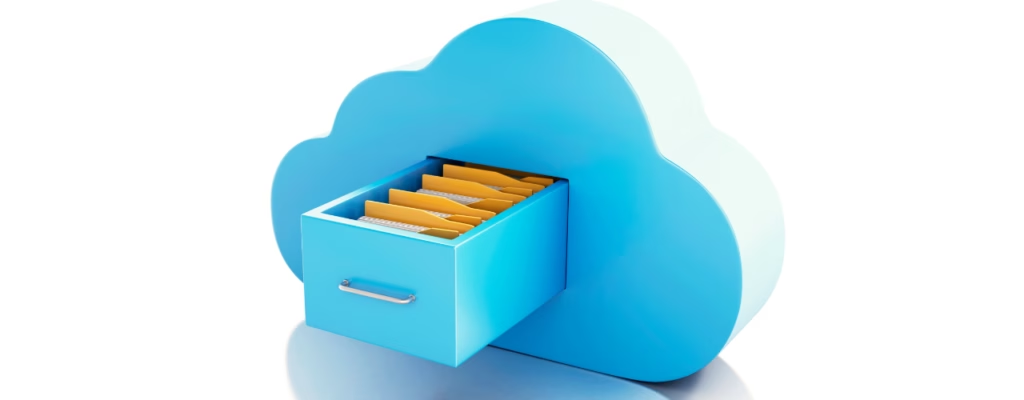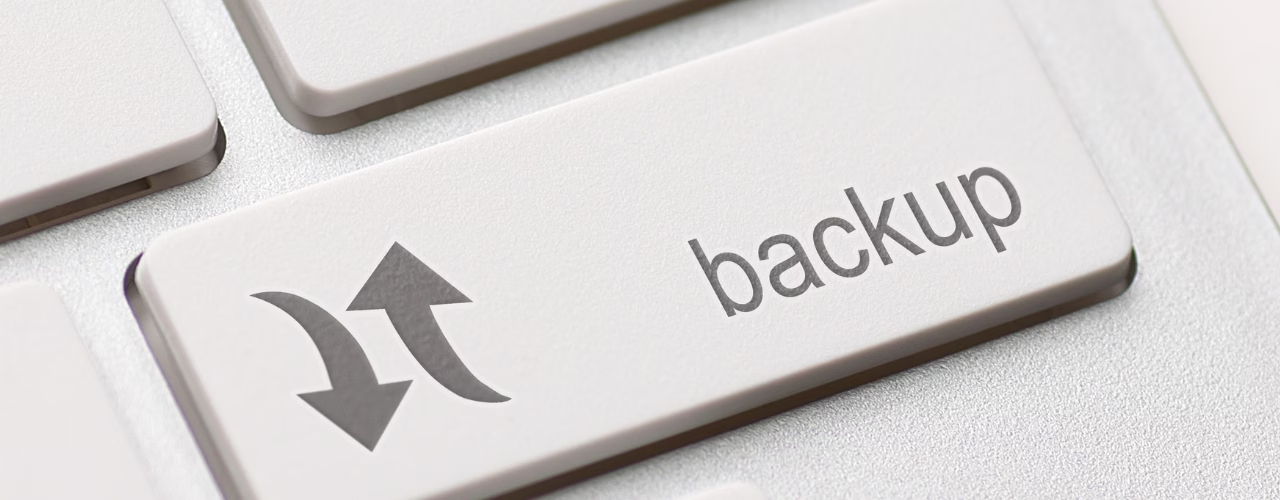A good business practice you can’t afford to skip
We’ve all been there: you’re working on an important file, perhaps crafting the perfect email or tweaking that spreadsheet, and then—poof! Your computer crashes, the file disappears, and your world starts spinning. That sinking feeling? Not a fan. But don’t worry, fellow business owners! There’s a simple fix to this potential disaster: back up your data.
Whether you’re a solopreneur or running a team, protecting your files should be at the top of your to-do list. Let’s dive into how cloud storage, external hard drives, or a mix of both can save you from a disaster of epic proportions (and we’re not talking about a coffee spill).
Cloud storage – Your data’s superhero cape
Cloud storage is like your trusty sidekick, always ready to swoop in and save the day. With services like Google Drive, Dropbox, OneDrive and plenty others, your files are safely stored in the cloud, accessible from any device, anytime, anywhere. And don’t worry about forgetting to back things up—cloud storage does that for you automatically.
Why it rocks:
- Access from anywhere: You can get to your files even if you’re working from a coffee shop in Paris (lucky you!).
- Automatic backups: No more fretting about remembering to back up your files. The cloud’s got your back.
- Scalable storage: Need more space? No problem. Just upgrade and keep growing.
But, and here’s the key part: don’t put all your eggs in one “cloud” basket.

External hard drives – Your back up data plan B (and C, D, E…)
Now, let’s talk about the physical backup option—external hard drives. These little heroes are your backup insurance policy. You get a copy of your files without relying solely on the internet. Plus, if you’re in a place with spotty Wi-Fi (we’ve all been there), your external hard drive is your best friend.
Why It’s a Smart Move:
- Offline Access: No Wi-Fi? No problem. You’ve got everything right there on your drive.
- One-Time Cost: Say goodbye to subscription fees and hello to a one-time payment for your external hard drive.
- Extra Security: If your cloud service decides to take an unplanned nap, your external drive will be the hero you didn’t know you needed.

The perfect combo: Cloud + hard drive = data protection Dream Team
Why choose one when you can have both? By using both cloud storage and external hard drives, you’ll have a two-fold safety net for your data.
Here’s how to do it:
- Cloud for the Essentials: Store the files you need on the go, like client contracts, project files, and invoices.
- External Hard Drive for Everything Else: Back up large files, archives, or even your cloud files for an extra layer of protection.
Creating a Backup Routine You Can Actually Stick To
Setting up your backup routine doesn’t have to be complicated. Here are a few quick tips to get you started:
- Automate It: Set it and forget it! Many services and software allow you to schedule backups. Set it once, and let it run on autopilot.
- Test Your Backups: Test a file restore every so often, so you’re not left in the dark when you need it most.
- Keep Things Organised: No more digging through piles of unorganised folders. Make it easy to find what you need when disaster strikes.
How Clear Coast Solutions can help
When it comes to keeping your business running smoothly, backing up your data is just the beginning. At Clear Coast Solutions, we handle the niggly little things—whether it’s managing your backups, organising your files, or making sure your tech is running smoothly, so you don’t have to. We offer admin, marketing, and customer support services that free up your time and let you focus on what really matters—growing your business.


Leave a Reply